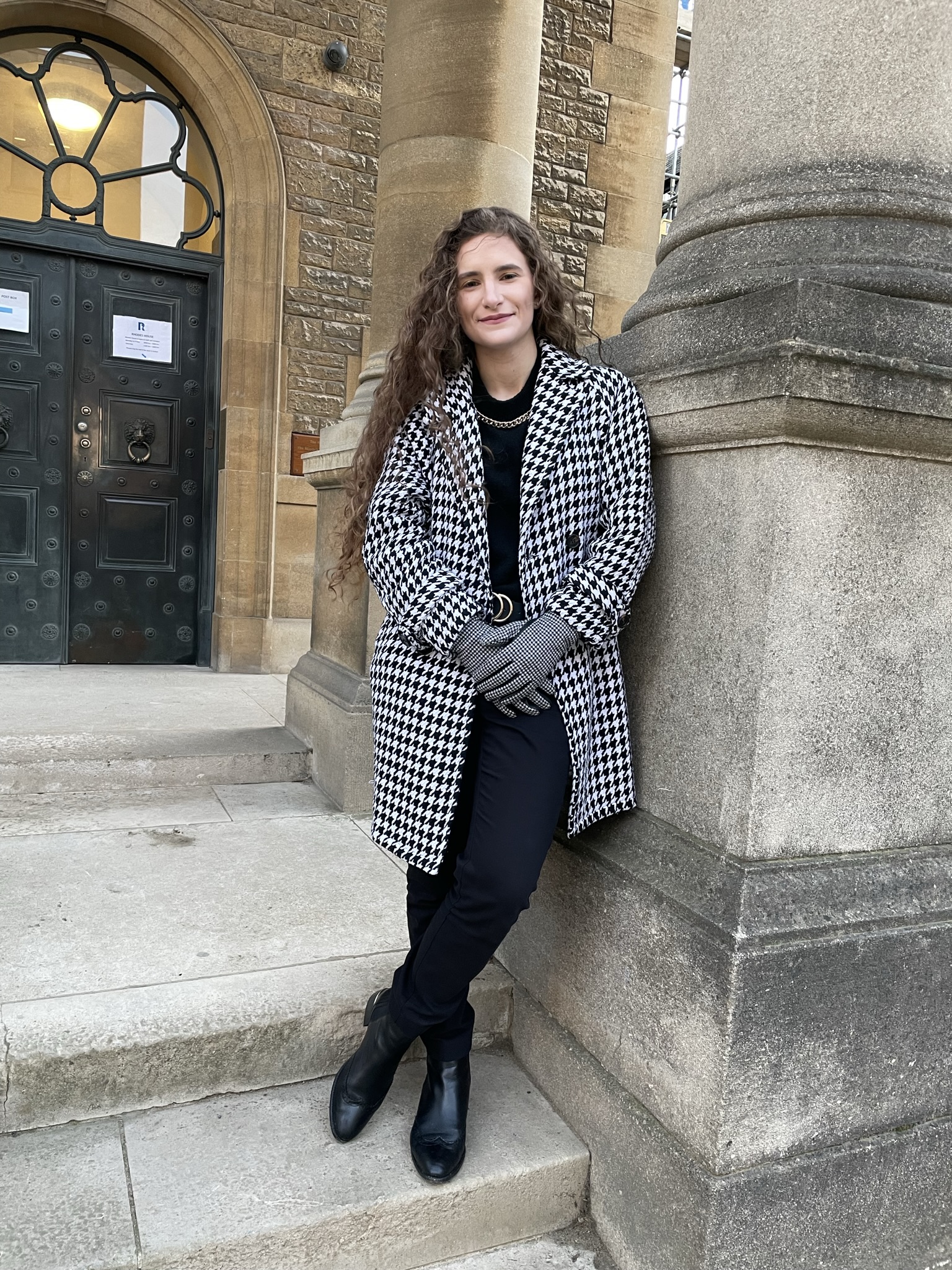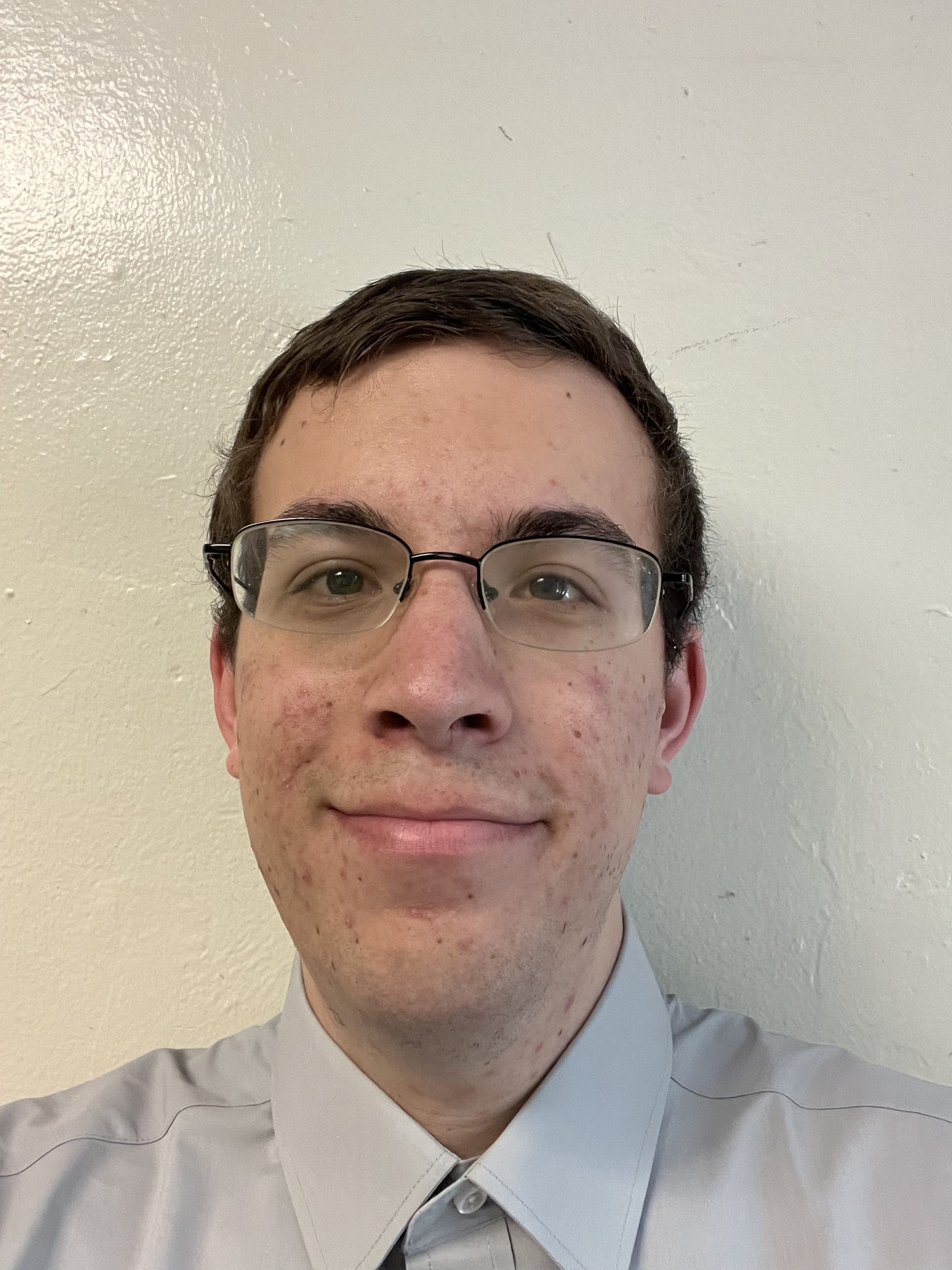NEWS FROM THE INQUIRE CAPITALISM TEAM
We are pleased to announce that the Inquire Capitalism Team has now published over a thousand entries for corporate archives. Our database of corporate archives has grown to be the most complete catalog of information about business archives. Recent entries include video game companies, media companies, and dairy and food corporations.
The Inquire Capitalism database is open for contributions. Send us your contribution through our website or by email to inquirecapitalism@history.clas.ufl.edu. For more information contact Professor Sean Adams, director of the Inquire Capitalism Program at the University of Florida (spadams@ufl.edu).
Spring 2022 interns of the University of Florida’s program in Digital Business History
The Inquire Capitalism Internship program offers two students every semester the opportunity to contribute to the Inquire Capitalism corporate archives database and to learn about digital archives and archiving, digital content creation, digital history, and different digital tools that are key for today’s writing and publishing in history and the Humanities job market.
In this new issue of the Inquire Capitalism newsletter, meet the Fall 2022 interns Aimee Clesi and Tyler Capps.

Aimee Clesi is a senior undergraduate student majoring in Philosophy and History at the University of Florida. She first became interested in joining the Inquire Capitalism team when studying Latin American history and Guatemalan politics, and soon discovered an entry on the United Fruit Company (UFCO) on the Inquire Capitalism database that directs visitors to a company photographic archive containing imagery from 1891 to 1962. She has been eager to work on this database–a digital humanities project–ever since.
Although her honors thesis is not tied to corporate archives or business history, Aimee plans to continue using what she has learned about data entry and digital curation from the Inquire Capitalism program in her research, as well as tools like Omeka and Zotero. Passionate about the value of the Inquire Capitalism database for historians the world over, she hopes that many will utilize its varied entries for their research projects.
In terms of career aspirations, Aimee has always dreamed of becoming a lawyer and is interested in criminal procedure, constitutional law, and civil rights. She has worked at the Supreme Court of Florida and with State Attorney Melissa Nelson and the Conviction Integrity Unit in the state’s most populous city, Jacksonville. Before taking a job at the U.S. District Court in Gainesville, she wrote about the death penalty (state repeal efforts and U.S. Supreme Court decisions) for the American Bar Association. Though mostly concerned with researching private equity firms and university press organizations for the Inquire Capitalism database, Aimee also hopes to contribute entries on corporations that dominate private prison markets, such as CoreCivic and the Geo Group.
Aimee is the first woman from the University of Florida to become a Rhodes Scholar-Elect. In addition, she is affiliated with the Bob Graham Center for Public Service and Center for the Humanities and Public Sphere.
Tyler Capps is a fourth-year undergraduate student majoring in History at the University of Florida, USA. Passionate about nineteenth-century US history, he became interested in joining the Inquire Capitalism internship program after taking a research seminar with Dr. Sean Adams on the legacy of railroads in the United States. This current initiative is his second digital history project, following a four-year-long digitization venture at the Marion County Museum of History and Archaeology. During his time at Inquire Capitalism, Tyler plans to center his research on videogame developers and assorted companies within the videogame industry. Despite the relative youth of this industry when compared with more established fields, videogames have experienced significant growth over the past three decades not only in profits, but also in visibility in every corner of the globe. By studying and documenting the history of companies in this industry, we can understand the nature of their inception and the ways in which they have affected world culture. He looks forward to learning new skills in digital history and historical research through his experience at Inquire Capitalism. 
Tyler plans on attending law school in Fall 2022 to work in criminal law or civil rights. He has previously worked as an intern for the Florida Justice Institute, where he was responsible for legal coding and mail review. Besides being a full-time student, Tyler spends much of his free time as a part-time bartender at a local movie theater.
From Glass-Steagall to the Gramm-Leach-Bliley Act: A Brief History of the Separation of Commercial and Investment Banking
By Chandler L’hommedieu
The Banking Act of 1933, often referred to as the Glass-Steagall Act, ushered in sweeping changes to bank reform including provisions to limit speculative activities by commercial banks. The act prevented banks from performing both commercial and investment banking functions; they could either accept deposits as a commercial bank, or engage in speculative practices with securities as an investment bank. These provisions emerged after the Wall Street Crash of 1929 and the ensuing Great Depression, which revealed the dangers of allowing banks to invest significant portions of their customers’ deposits in risky securities where stock market panics could wipe out an individual’s entire savings. The Glass-Steagall Act gave banks one year to decide between commercial banking or investment banking as their sole function.1
In this context, J.P. Morgan chose commercial banking as its specialty and dismantled its investment divisions. In 1935, its partners Henry Sturgis Morgan and Harold Stanley founded Morgan Stanley as an independent investment bank staffed and funded by former J.P. Morgan associates. Such practices were common as banks split into separate companies to comply with Glass-Steagall.2 In many cases, the Glass-Steagall Act gave banks the opportunity to eliminate their unprofitable security divisions that had become ladened with losses in the Great Crash of 1929 with National Bank of New York, the predecessor to Citigroup, being a significant example.3
The late twentieth century saw a period of consolidation for banks. Between 1984 and 1999, the number of commercial banks in the United States decreased by 40 percent despite the total number of branches increasing by 55 percent, as mergers both eliminated competition and enlarged the remaining banks.4 Though the Glass-Steagall Act prevented bank holding companies from owning both commercial and investment banks, a loophole allowed for commercial banks to acquire banks with investment functions so long as they dismantled those functions within two to five years. With the divide between commercial and investment banks already fraying, the Federal Reserve became increasingly lenient towards such acquisitions. In 1998, Citicorp, the largest American commercial bank at that time, announced a merger with the insurance company Travelers Group to form Citigroup. Travelers Group’s substantial underwriting and insurance operations were unacceptable for a commercial bank under the Glass-Steagall Act, but Citigroup based its decision to merge on the belief that Congress would change its legislation on banking before the Federal Reserve would require Citigroup to dismantle Traveler Group’s non-commercial operations.5
After significant lobbying from the banking industry at large, in 1999 Congress passed The Financial Services Modernization Act, often referred to as the Gramm-Leach-Bliley Act (GLBA). GLBA repealed many of the restrictions on banks contained within the Glass-Steagall Act. Key for Citigroup’s merger, it permitted bank holding companies to, once again, perform both commercial and investment banking functions simultaneously.6 Since commercial banks were allowed to acquire investment banks, the large independent investment bank disappeared by 2008, with those remaining rendered bankrupt by the financial crash. In their place came smaller, more specialized boutique investment banks and bank holding companies that developed investment banking divisions alongside their commercial operations. Wells Fargo, for example, acquired Wachovia Securities in 2009 to establish its own investment banking division under the name of Wells Fargo Securities.7
The historical and business records on some of these banks are now available for consultation. The Inquire Capitalism team has collected and curated data about these archives, which is now available here: https://inquirecapitalism.omeka.net/. Users may search for terms such as ‘banks’ to discover which financial institutions have accessible archives. In addition, the project interviewed Dr. Susie Pak, who talks about her research process when writing Gentlemen Bankers, an investigation on the Morgan family’s rise to power in the banking world during the start of the twentieth century. This podcast is available in the third issue of our newsletter at https://inquire-capitalism.clas.ufl.edu/2021/07/01/vol-1-issue-3-2021/.
